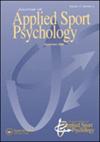体育运动中的对话:高中体育运动中社会正义教育倡议的项目评估
IF 3.2
2区 心理学
Q2 HOSPITALITY, LEISURE, SPORT & TOURISM
引用次数: 2
摘要
尊重运动员独特身份的包容性空间和关系对于确保适应性运动体验至关重要(例如,Coakley;Kochanek & Erickson)。青年运动员和成年领导人需要具备培养包容性体育环境的意识和技能,并作为能够促进积极的个人和社会变革的推动者。当代社会正义问题的普遍存在和日益突出强调了发展这种关键能力的重要性。学者们最近呼吁进行探索性和合作性的努力,以帮助运动员和成年领导者培养这种关键能力,并开展评估研究,检查项目的有效性。这项以利用为重点的评价的目的是评估社会正义教育倡议“体育对话”的影响和相关过程,该倡议采用了群体间对话教学法。主要作者(和项目促进者-促进者-评估者)在一个校际体育社区内交付并评估了体育对话的有效性。采用混合方法聚合评估设计,收集治疗特定时间点、治疗前后和随访时间点的数据。综合分析来自学生运动员(n = 7)和成年领导者(n = 13)的数据显示,与学生运动员相比,成年人在批判性意识和技能发展/转移方面表现出更显著的提高,而学生运动员在项目后表现出一些(尽管不太明显)的进步。结果显示,参与者的态度发生了有利的转变,运动员和成年人之间存在一些差异。对参与者项目过程的研究结果有助于阐明他们的对话经历中有意义的方面,以及各种不适的来源,以及学习移情的障碍。这项评估评估了体育对话的有效性,这是一个社会正义教育项目,在一个校际体育社区的运动员和成年领导人之间进行。结果为参与者的学习成果和相关项目过程的有利变化提供了初步支持。研究结果对未来的项目实施和青少年通过体育发展具有启示意义。这一形成性评价为在青少年体育背景下进行社会正义教育的群体间对话方法的有效性和可行性提供了支持。这个独特的以利用为重点的项目体现了一种与环境相关的研究方法,该方法回应了青年体育社区的实际现实。通过群体间对话(和其他框架)帮助体育领域的青年和成人领袖发展关键能力的其他基于社区的努力,对于在不同个人和体育社区环境中建立对社会正义行为改变的理解是必要的。本文章由计算机程序翻译,如有差异,请以英文原文为准。
Dialogue in athletics: A program evaluation of a social justice education initiative in high school sports
Abstract Inclusive spaces and relationships that honor athletes’ unique identities are vital to ensure adaptive sport experiences (e.g., Coakley; Kochanek & Erickson). Youth athletes and adult leaders need to possess awareness and skills to foster inclusive sport environments and act as agents who can contribute to positive individual and social change. The prevalence and increased visibility of contemporary social justice issues have underscored the importance of developing such critical competencies. Scholars have recently called for exploratory and collaborative efforts to help athletes and adult leaders develop such critical competencies and carry out evaluation research that examines the effectiveness of programs. The purpose of this utilization-focused evaluation was to assess the impact and relevant processes of a social justice education initiative, Dialogue in Athletics, which used intergroup dialogue pedagogy. The lead author (and program facilitator-facilitator-evaluator) delivered and assessed the effectiveness of Dialogue in Athletics within one interscholastic sports community. A mixed methods convergent evaluation design was used to collect data at the session-specific, pre/post-program, and follow-up time points. Integrated analyses of data from student-athletes (n = 7) and adult leaders (n = 13) revealed that adults showed more marked increases in critical awareness and skills development/transference relative to student-athletes who showed some, though less pronounced, gains following the program. Results revealed favorable shifts in participants’ attitudes, with some variation between athletes and adults. Findings on participants’ program process helped elucidate meaningful aspects of their dialogue experience alongside various sources of discomfort, and barriers to learning transference. Lay summary This evaluation assessed the effectiveness of Dialogue in Athletics, a social justice education program, among athletes and adult leaders within one interscholastic sports community. Results offer initial support for favorable changes in participants’ learning outcomes and relevant program processes. Findings have implications for future program delivery and youth development through sport. IMPLICATIONS FOR PRACTICE This formative evaluation lends support for the effectiveness and feasibility of an intergroup dialogue approach to social justice education within the youth sport context. This unique utilization-focused project exemplifies a contextually relevant approach to research that responds to the practical realities of youth sport communities. Additional community-based efforts that use intergroup dialogue (and other frameworks) to help youth and adult leaders in sport develop critical capacities are necessary to build an understanding of social justice behavior change among diverse individuals and sport community settings.
求助全文
通过发布文献求助,成功后即可免费获取论文全文。
去求助
来源期刊
CiteScore
6.90
自引率
9.40%
发文量
39
审稿时长
>12 weeks
期刊介绍:
The Journal of Applied Sport Psychology (JASP) is a refereed journal designed to significantly advance thought, theory, and research on applied aspects of sport and exercise psychology. Submissions such as experimental studies, qualitative research, correlational studies, case studies, position papers, critical reviews, theoretical developments specific to applied research conducted in sport and/or exercise settings, or having significant applied implications to sport and exercise, are appropriate content for the JASP. Please see the recent Editorial for further details on the aims and scope of the journal. JASP is a non-proprietary journal that is an official publication of the Association for Applied Sport Psychology (AASP). The purpose of AASP is to promote the development of psychological theory, research, and intervention strategies in sport and exercise psychology. The Journal is a direct benefit of membership in AASP and is received by its student and professional members. The publisher of the JASP is Taylor and Francis, Inc. of Philadelphia, PA.

 求助内容:
求助内容: 应助结果提醒方式:
应助结果提醒方式:


